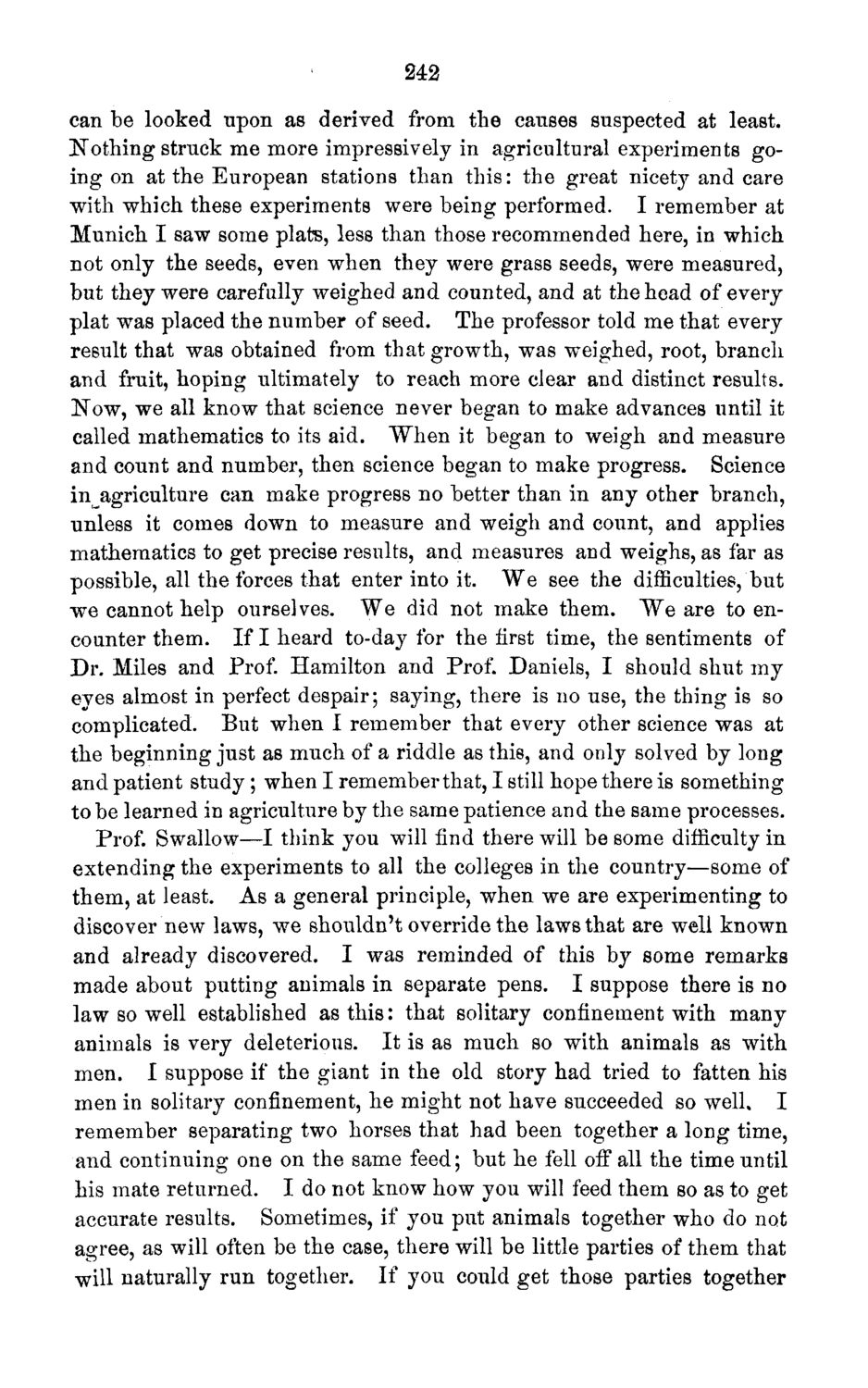| |
| |
Caption: Board of Trustees Minutes - 1871
This is a reduced-resolution page image for fast online browsing.

EXTRACTED TEXT FROM PAGE:
242 can be looked upon as derived from the causes suspected at least. Nothing struck me more impressively in agricultural experiments going on at the European stations than this: the great nicety and care with which these experiments were being performed. I remember at Munich I saw some plats, less than those recommended here, in which not only the seeds, even when they were grass seeds, were measured, but they were carefully weighed and counted, and at the head of every plat was placed the number of seed. The professor told me that every result that was obtained from that growth, was weighed, root, branch and fruit, hoping ultimately to reach more clear and distinct results. ]STow, we all know that science never began to make advances until it called mathematics to its aid. When it began to weigh and measure and count and number, then science began to make progress. Science in^agriculture can make progress no better than in any other branch, unless it comes down to measure and weigh and count, and applies mathematics to get precise results, and measures and weighs, as far as possible, all the forces that enter into it. We see the difficulties, but we cannot help ourselves. We did not make them. W e are to encounter them. If I heard to-day for the first time, the sentiments of Dr. Miles and Prof. Hamilton and Prof. Daniels, I should shut my eyes almost in perfect despair; saying, there is no use, the thing is so complicated. But when I remember that every other science was at the beginning just as much of a riddle as this, and only solved by long and patient study; when I remember that, I still hope there is something to be learned in agriculture by the same patience and the same processes. Prof. Swallow—I think you will find there will be some difficulty in extending the experiments to all the colleges in the country—some of them, at least. As a general principle, when we are experimenting to discover new laws, we shouldn't override the laws that are well known and already discovered. I was reminded of this by some remarks made about putting animals in separate pens. I suppose there is no law so well established as this: that solitary confinement with many animals is very deleterious. It is as much so with animals as with men. I suppose if the giant in the old story had tried to fatten his men in solitary confinement, he might not have succeeded so well* I remember separating two horses that had been together a long time, and continuing one on the same feed; but he fell off all the time until his mate returned. I do not know how you will feed them so as to get accurate results. Sometimes, if you put animals together who do not agree, as will often be the case, there will be little parties of them that will naturally run together. If you could get those parties together
| |